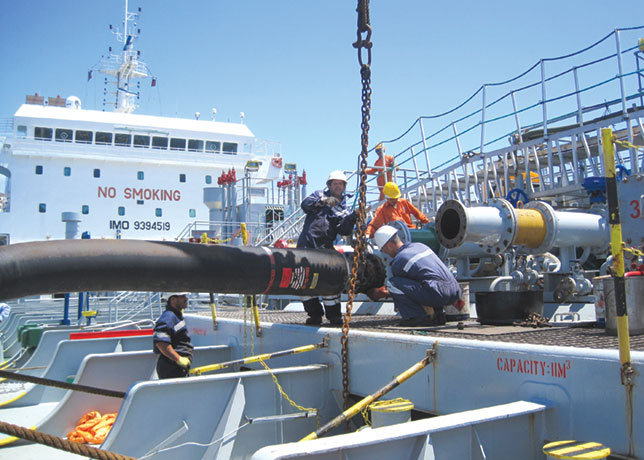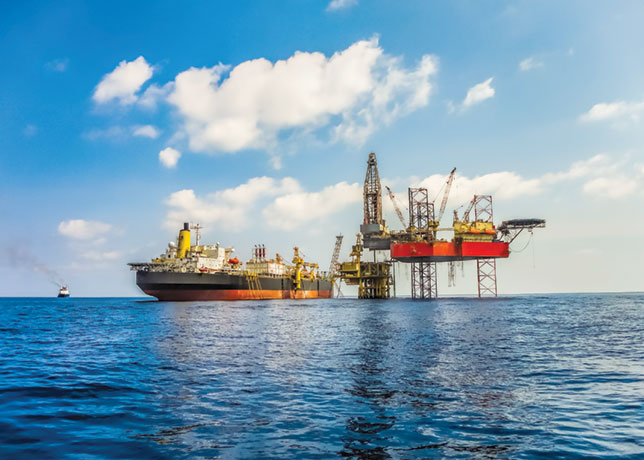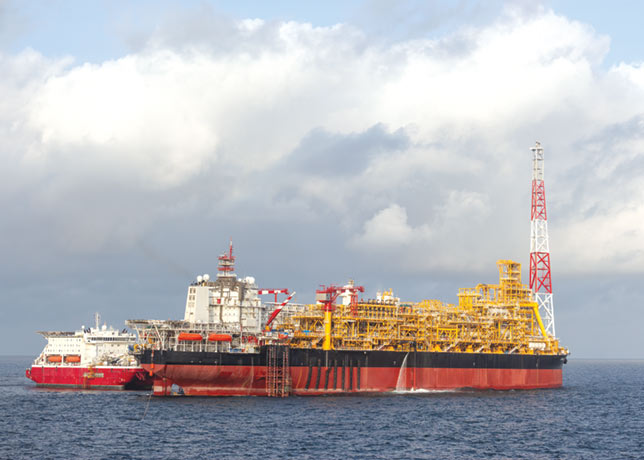
 The versatility and flexibility of FPSOs make them suitable in challenging environments
The versatility and flexibility of FPSOs make them suitable in challenging environments
The ability of FPSOs to operate in remote and deepwater locations, coupled with their flexibility and economic advantages, positions them as indispensable assets in the global oil and gas industry
The global floating production storage and offloading (FPSO) market is experiencing significant growth, driven by increasing offshore exploration and production activities, particularly in deepwater and ultra-deepwater regions.
FPSOs are vital assets in the oil and gas industry, serving as floating facilities that process and store hydrocarbons extracted from subsea reservoirs before offloading them to shuttle tankers or pipelines for transportation.
As of 2024, the global FPSO market size reached approximately $22.8 billion, with projections indicating an increase to $36.6 billion by 2033, reflecting a compound annual growth rate (CAGR) of 5.14 per cent during the period from 2025 to 2033.
This growth is attributed to the rising demand for energy, advancements in offshore technologies, and the economic viability of deploying FPSOs in remote offshore locations where traditional infrastructure is lacking.
The versatility and flexibility of FPSOs make them particularly suitable for operations in challenging environments.
Unlike fixed platforms, FPSOs can be relocated, offering operators the ability to redeploy assets as needed, thereby optimising resource utilisation.
This adaptability is crucial in frontier regions where local pipeline infrastructure is absent, and smaller oil and gas fields may have shorter production lifespans.
The market's expansion is also influenced by the increasing investments in offshore production.
For instance, in recent years, there has been a notable surge in offshore wind sector investments, reflecting a broader trend of capital flow into offshore energy projects.
This influx of investment underscores the growing confidence in the offshore sector's potential and the critical role FPSOs play in harnessing these resources.
Technological advancements are further propelling the FPSO market. The integration of advanced technologies and the digitisation of FPSO vessels enhance operational efficiency, safety, and environmental compliance.
These innovations enable real-time monitoring and control, predictive maintenance, and improved data analytics, leading to cost reductions and increased productivity.
Geographically, regions such as South America and Africa are emerging as significant markets for FPSO deployments.
Brazil, in particular, continues to be a dominant player, with numerous planned and operational FPSO projects.
The country's pre-salt oil fields present substantial opportunities for FPSO utilisation, given the deepwater nature of these reserves.
In Africa, countries like Angola and Nigeria are also witnessing increased FPSO activities, driven by the exploration of deepwater oil fields and the need for efficient production and storage solutions.
These developments highlight the global nature of the FPSO market and its critical role in meeting the world's energy demands.
The competitive landscape of the FPSO market is characterised by collaborations and partnerships among key industry players.
Companies are joining forces to share risks, pool resources, and leverage combined expertise to execute complex offshore projects successfully.
This trend towards strategic alliances is expected to continue, fostering innovation and driving market growth.
Environmental sustainability is becoming increasingly important in the FPSO market. Operators are focusing on reducing emissions and minimising environmental footprints by adopting cleaner technologies and adhering to stringent environmental regulations.
This shift towards sustainable practices not only aligns with global environmental goals but also enhances the social license to operate in various regions.
The FPSO market is poised for substantial growth in the coming years, underpinned by rising energy demands, technological advancements, and strategic investments in offshore exploration and production.
The ability of FPSOs to operate in remote and deepwater locations, coupled with their flexibility and economic advantages, positions them as indispensable assets in the global oil and gas industry.










































































